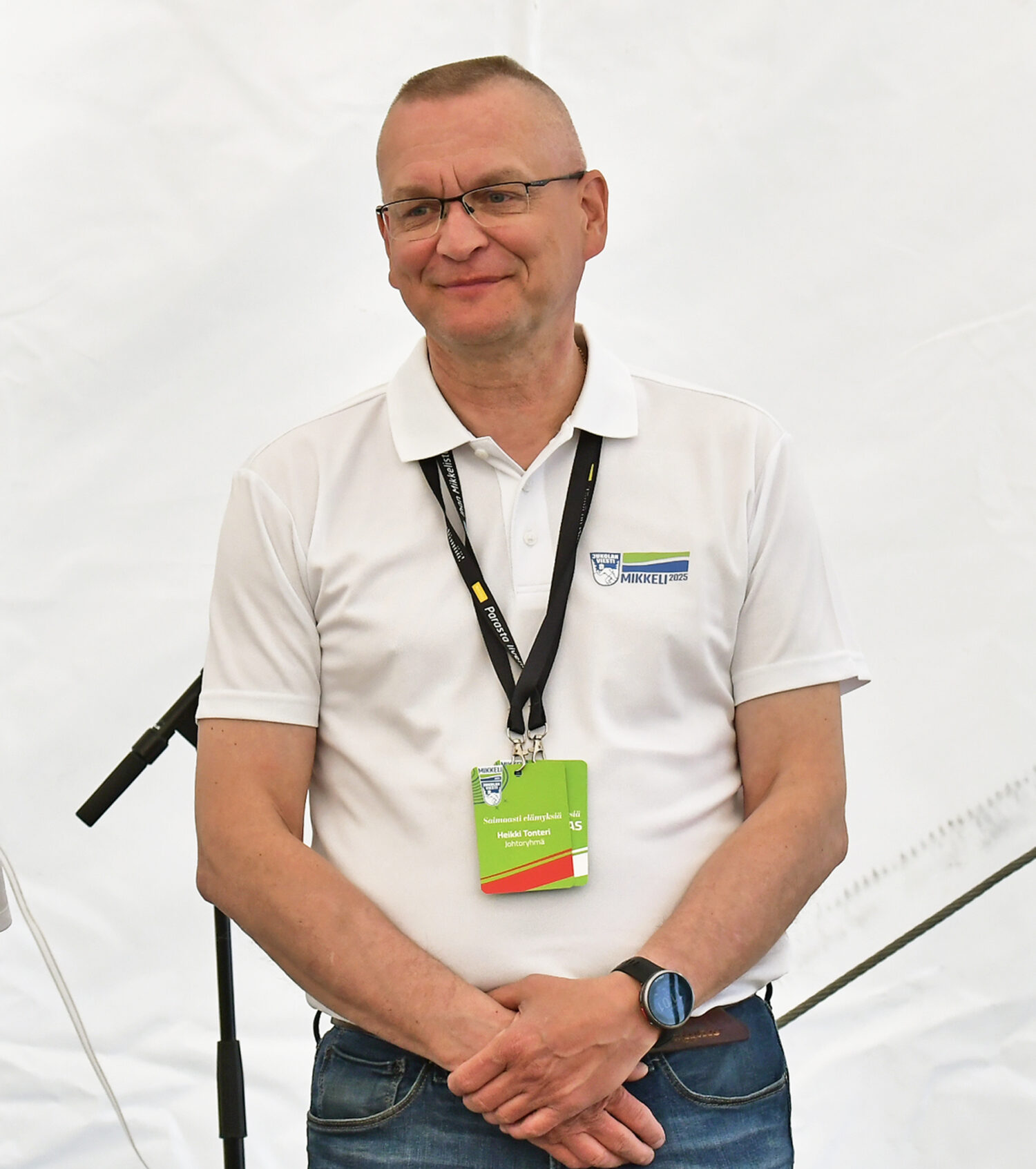
Competition Director Heikki Tonteri. Photo: Paula Korpinen.
Mikkeli-Jukola took place in the terrain of Tikkala, Mikkeli over the weekend, bringing together approximately 18,000 orienteers. The unique competition center, located in the industrial area of SBS Betoni Oy, hosted an estimated 40,000 people during the event.
The area was selected as the site for Jukola mainly due to its terrain, which challenged even the most experienced orienteers.
“Everything went excellently. Thank you to all the volunteers. You did a tremendous amount of work with great quality. The competition was tough (even if the leaders pulled ahead). The courses were demanding, and the terrain was both challenging and enjoyable”, says Juho Siikilä, Chair of the Mikkeli-Jukola Organizing Committee.
“The atmosphere in the competition center and tent areas was fantastic. The spirit of Jukola was excellent once again, showing the greatness of the orienteering community. The sauna was hot, and the people stoking the fire even received spontaneous standing ovations because the steam was said to be so good. Traffic arrangements ran exceptionally smoothly, with no congestion. Competitors and spectators behaved calmly and were considerate of others. The Jukola gate was also praised. Likewise, visiting the shops was pleasant, especially since the concrete element storage area provided a cool environment. Feedback has been 99.5% positive. On top of everything, the weather couldn’t have been better”, Siikilä adds with satisfaction.
Delivering the Jukola Standard Together
Competition Director Heikki Tonteri echoes Siikilä’s sentiments: “A huge thank you for the event’s success goes to our dedicated and skilled team of volunteers, partners, and landowners. Without their long-term commitment and flexibility, we could not have made Mikkeli-Jukola happen.”
Although Jukola is a weekend event, the core team has been working on it for seven years. “In that time, we had the opportunity to plan, prepare, test, and make adjustments. One very important part was the final rehearsal held during Jukola week, based on which we made final refinements to operations. For example, we discovered in the rehearsal that the barcodes on some bib numbers, which are crucial for results processing, weren’t functioning. Fortunately, we had time to fix them, and during the event, everything worked flawlessly—just like the other operations. That’s how we handled the entire weekend—ready to adapt when needed. Everyone showed flexibility, awareness, and the right attitude.”
The construction of Mikkeli-Jukola in Tikkala took several weeks. Teardown began immediately after the competition ended on Sunday. “Everything will be dismantled by Tuesday. The tent supplier, media producer, and equipment rental companies will retrieve their large gear early in the week. The Defence Forces will also remove all their equipment by Tuesday morning. Taking down the sauna will take a few more days. Otherwise, the volunteers have cleaned up almost everything by Monday, and by the end of the week, it might look like nothing ever happened,” Siikilä says.
Lessons to Carry Forward
Jukola is organized annually in different parts of Finland. Mikkeli-Jukola 2025 was the fifth Jukola Relay held in South Savo. Since each event has a different organizer, maintaining quality and following jointly agreed procedures is crucial. “The organizing rights for Jukola belong to the association Kaukametsäläiset ry. There is a comprehensive organizing manual for the event, which is updated annually based on the experiences of each year’s Jukola. This ensures the event continues to develop and that the learnings from each year are utilized,” explains Juhani Sihvonen, Chair of Kaukametsäläiset ry.
Jukola uses a lot of shared, rotating equipment. The organizers of the next year’s Jukola take part in dismantling the setup and ensure they receive all the necessary materials for the following year’s event. From Mikkeli, seven storage containers and three full trailer trucks will head to Kotka. Among the items transported will be the three new Jukola saunas that were used for the first time in Mikkeli.
A final report will be compiled from Mikkeli-Jukola, detailing what went well and identifying areas for improvement. In line with Jukola tradition, the Mikkeli core team will pass on their knowledge to the next organizers during a handover meeting in October, held in Kotka, the host city of next year’s event. In 2027, the event will be held in Sotkamo Vuokatti, followed by Espoo in 2028, Kaustinen in 2029, and Jämi in 2030.
A traditional participant survey will be conducted, so keep an eye on your email for the Mikkeli-Jukola newsletter.
